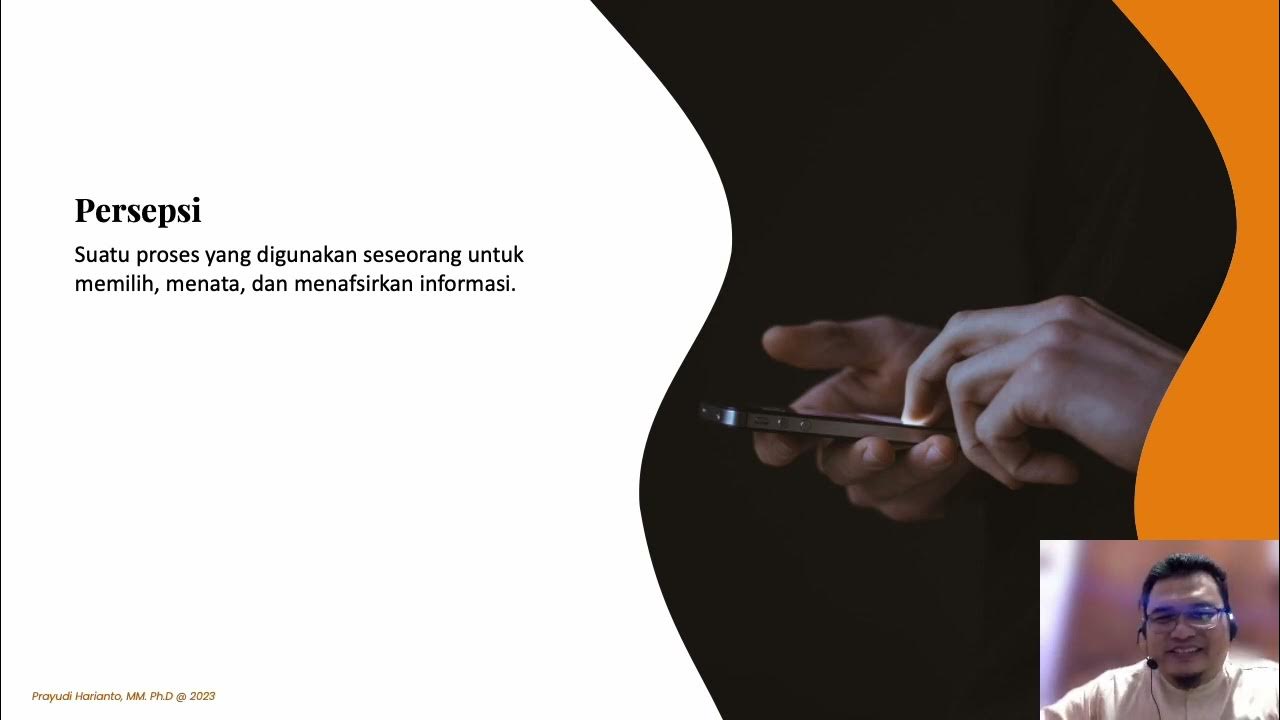Pengantar Manajemen Ep.06 || Semester 1 - 2024 || Pengambilan Keputusan Dalam Manajemen - (part 1)
Summary
TLDRIn this insightful lecture on management decision-making, the speaker discusses the nature of problems as deviations from expected outcomes, emphasizing the importance of identifying causes. They outline the decision-making process, which includes defining the main problem, gathering relevant facts, considering alternatives, taking action, and evaluating results. Various definitions by experts highlight the conscious choice involved in decision-making. Additionally, the lecture categorizes decisions into programmed, non-programmed, and those made under risk or uncertainty. The speaker also covers the phases of decision-making: intelligence, design, and selection, showcasing techniques that leverage scientific methods for effective outcomes.
Takeaways
- 😀 Problems are defined as deviations between expected outcomes and actual results, necessitating identification and verification of their causes.
- 😀 Decision-making involves evaluating options and selecting the best course of action to achieve specific goals or solve problems.
- 😀 Poor decision-making can stem from limited perspectives, over-reliance on past experiences, and excessive confidence.
- 😀 The decision-making process includes several steps: identifying the main problem, developing alternatives, evaluating options, taking action, and reviewing results.
- 😀 Identifying the core issue is crucial for effective problem-solving and decision-making.
- 😀 It is important to list and analyze potential alternatives to find the most effective solution to a problem.
- 😀 Experts like Grter and George Jr. emphasize the importance of using logical criteria and conscious evaluation in the decision-making process.
- 😀 There are different types of decisions: programmed decisions for routine situations and non-programmed decisions for unique challenges.
- 😀 Decisions often involve varying levels of risk and uncertainty, requiring careful assessment of potential outcomes.
- 😀 Continuous learning and review of past decisions can enhance future decision-making effectiveness.
Q & A
What is the primary focus of the discussion in this video?
-The primary focus is on decision-making in management, particularly how to identify problems and make informed decisions.
How is a problem defined in the context of management?
-A problem is defined as a deviation between expected outcomes and actual results, necessitating the identification and verification of underlying causes.
What are some common reasons for poor decision-making by managers?
-Common reasons include reliance on limited perspectives, past experiences, maintaining the status quo, and overconfidence.
What are the five steps in the decision-making process outlined in the video?
-The steps are: 1) Identify the problem, 2) Gather relevant information, 3) Analyze alternatives, 4) Make a decision, and 5) Evaluate the effectiveness of the decision.
According to experts, what does decision-making involve?
-Decision-making involves selecting from multiple alternatives based on specific criteria and is a conscious process that includes evaluation and selection.
What are the two main types of decisions mentioned?
-The two main types are programmed decisions, which are routine and follow established guidelines, and non-programmed decisions, which are unique and require more analysis.
What are the three phases of decision-making discussed in the video?
-The three phases are the intelligence phase (gathering information), the design phase (developing strategies), and the choice phase (selecting the best strategy).
What techniques are recommended for effective decision-making?
-Operational research and scientific methods are recommended for analyzing decisions effectively, helping managers make informed choices.
Why is it important for managers to evaluate the effectiveness of their decisions?
-Evaluating effectiveness is crucial to determine whether the decision achieved its intended objectives and to learn from the outcomes for future decision-making.
What role does gathering relevant information play in the decision-making process?
-Gathering relevant information is essential for understanding the context of the problem, which helps in analyzing alternatives and making informed choices.
Outlines

Cette section est réservée aux utilisateurs payants. Améliorez votre compte pour accéder à cette section.
Améliorer maintenantMindmap

Cette section est réservée aux utilisateurs payants. Améliorez votre compte pour accéder à cette section.
Améliorer maintenantKeywords

Cette section est réservée aux utilisateurs payants. Améliorez votre compte pour accéder à cette section.
Améliorer maintenantHighlights

Cette section est réservée aux utilisateurs payants. Améliorez votre compte pour accéder à cette section.
Améliorer maintenantTranscripts

Cette section est réservée aux utilisateurs payants. Améliorez votre compte pour accéder à cette section.
Améliorer maintenantVoir Plus de Vidéos Connexes
5.0 / 5 (0 votes)






